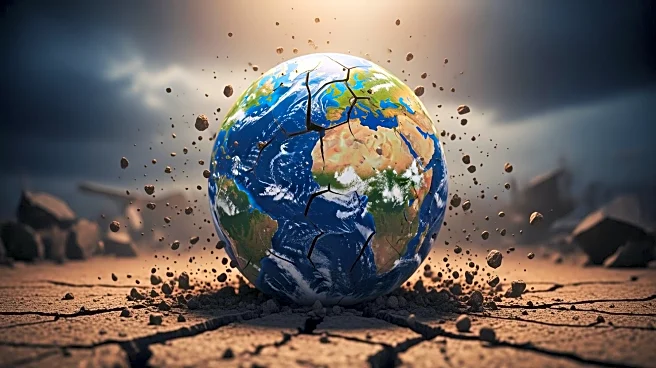What's Happening?
On July 30, 2025, a magnitude 8.8 earthquake struck off the eastern coast of Russia, near the Kamchatka Peninsula. This seismic event ranks among the strongest earthquakes recorded globally. The earthquake generated
a tsunami that affected Russia's coast and sent high waves across the Pacific Ocean, impacting regions as far as Japan, Hawaii, and California. The earthquake is part of a series of significant seismic events worldwide, including recent quakes in Myanmar and Taiwan. The Richter scale, used to measure earthquake magnitude, indicates that the seismic waves of this earthquake were significantly powerful.
Why It's Important?
This earthquake's magnitude places it among the top ten strongest ever recorded, highlighting the ongoing seismic risks in the Pacific Ring of Fire. The event underscores the need for robust global monitoring systems and international cooperation in disaster response. The widespread impact of the tsunami demonstrates the interconnected nature of seismic events and their potential to affect multiple countries. This earthquake serves as a critical reminder of the importance of preparedness and resilience in the face of natural disasters, particularly for coastal and island communities.
What's Next?
Scientists will continue to analyze data from the earthquake to better understand its characteristics and potential implications for future seismic activity. This analysis may lead to advancements in earthquake prediction and early warning systems. Additionally, affected regions will likely review and enhance their disaster preparedness and response strategies to mitigate the impact of future events. International collaboration in seismic research and disaster management may be strengthened as a result of this earthquake.
Beyond the Headlines
The earthquake's occurrence in a geopolitically sensitive region raises questions about the security and resilience of critical infrastructure, including military installations. The event may prompt discussions on the strategic implications of natural disasters on national security. Furthermore, the earthquake highlights the need for sustainable development practices that consider seismic risks, particularly in vulnerable regions.









